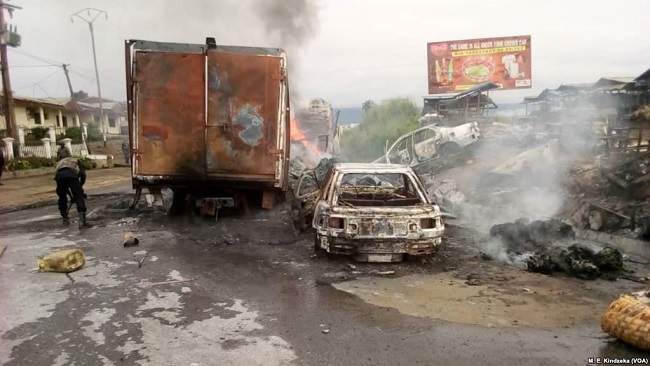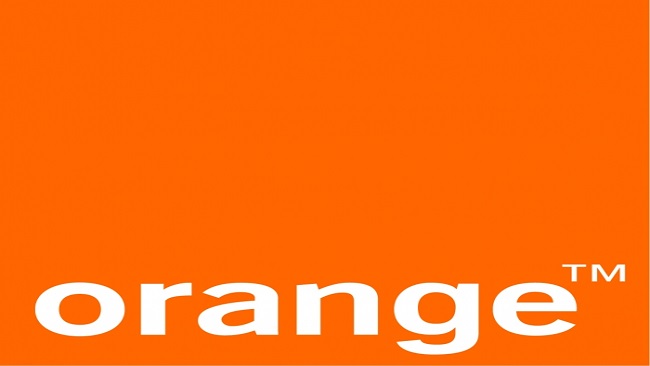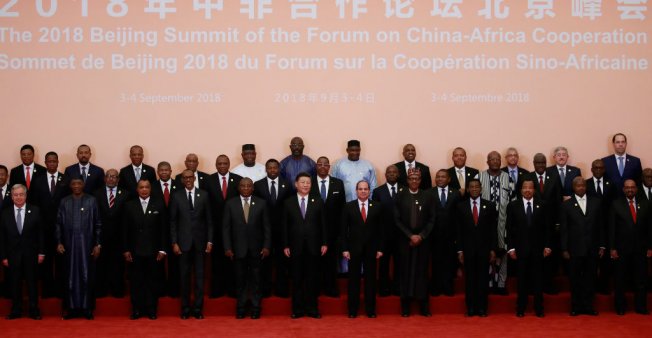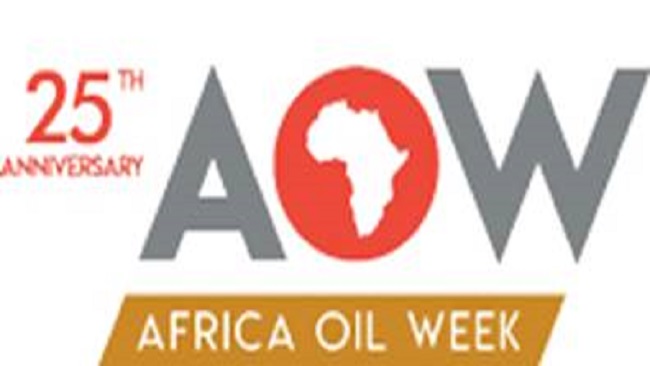22, September 2018
Violence cripples innovation in Southern Cameroons 0
Protracted violence in the English-speaking regions of Cameroon has forced start-ups to ship their businesses. The Cameroon tech industry is one of the fastest growing in Africa, with Buea the former capital of Southern Cameroon termed the “Silicon Mountain” as it hosts a cluster of flourishing tech start-ups.
As violence increases between armed separatists and government troops, displacing thousands and forcing others into neighbouring Nigeria, IT start-ups have been forced to escape as well.
At just 27, Cedric Yengo, inspired by the Silicon Valley success stories, amongst others, has been forced to ship his business Rydz2Go overseas. Rydz2Go plans to shake up the transport technology, currently dominated by Uber and Lyft.
Engineering for Rydz2Go began in Buea, but later moved to the US, after authorities shut down the Internet for several months, crippling the operations of most start-ups.
The Cameroonian government suspended Internet services to the Northwest and Southwest in January last year in what activists described as “human right violation”.
Internet disruption
Though Internet access was later restored in April after international pressure from, among others, the United Nations and Pope Francis; the nearly 100 days blockade remains the longest period of Internet disruption by an African government.
According to the Paris-based Internet Without Borders, Egypt and Ethiopia were also among nine countries globally that experienced Internet blockades between January and June 2017.
The initial threat to the start-ups in Cameroon was the offline status of their bases but with increasing violence, the major threat now is safety. Young entrepreneurs like Yengo were at the highest risk of arbitrary arrests and stray bullets. Many civilians have been killed by stray bullets in the regions, including a Roman Catholic priest, the Rev Father Alexander Nougi Sob, who was killed in the Southwestern town of Muyuka.
“It is no longer just our businesses suffering, we as individuals are not safe at all,” said Yengo.
Best location
While Rydz2Go and many others were forced to relocate abroad, other young entrepreneurs like Fritz Ekogwe, Founder and CEO of the file transfer app (Feem.io) and a fast secure crypto wallet (intersteller.exchange) was forced to move internally to Yaoundé, Cameroon’s political capital.
Churchill Mambe, founder and CEO of Njorku, an employment and hotel services company, keeps building his business in Southern Cameroons amidst the turmoil.
“Rydz2Go’s goal is to break onto the global market and our move to New York is the best location to achieve that,” Yengo added.
Ridesharing apps like Uber and Lyft offer pick up from point A and drop off at point B, but Rydz2Go is different because its offer is time bundles, Yengo explained. He said the latter guarantees maximum flexibility and permits users to have a ride waiting while they do their errands.

President Paul Biya
“We offer users more control with their perfect service for business appointments, city tours and date nights. Have you ever been to a new city and not know how to get around? Rydz2Go strives to ensure that you have not only a local ride but a local guide as well,” Yengo said of the app which was currently being tested.
Up to 400 civilians have been killed by both the security forces and the armed separatists in the trouble-hit regions, according to Amnesty International. The group said in a new report on September 17 that it had also documented the deaths of more than 160 members of the security forces at the hands of armed separatists since late 2016. It noted, however, that the toll could be much higher as some attacks went unreported.
“The situation in the Anglophone regions of Cameroon is becoming increasingly desperate with no one spared from the violence which is spiralling out of control,” said Ms Samira Daoud, the Amnesty International Deputy Director for West and Central Africa.
Attacking dozens
Armed separatists are accused by Amnesty of kidnapping students and teachers and attacking dozens of schools between February 2017 and May 2018 in a bid to “strike fear amongst the population”.
“We have reasons to believe many other lives of ordinary people are now at risk with the violence carried out by some members of the armed separatists groups. This must immediately stop,” Ms Daoud said further.
The almost two-year long violence that has gripped the English-speaking regions of Cameroon started as an industrial strike by lawyers and teachers, but morphed into an internal armed conflict with fears the Central African country could slide into a civil war, if the violence persists.
The crisis
“We see the situation degenerating from a crisis to a conflict,” said Mr Gaby Ambo, the Executive Director of the Finders Group Initiative, a human rights group in Cameroon.
“And if nothing is done soon, it will turn into a civil war with grave consequences.”
The recurrent deadly confrontations have led to a mass movement of people seeking safety. The UN Office for the Coordination of Humanitarian Affairs estimates some 160,000 people have fled their homes in the strife-hit regions into the bushes, while more than 21,000 have crossed to next door Nigeria as refugees.
Many countries and groups have prescribed dialogue as a way out of the crisis, but the path was yet to be seriously pursued. The opposition thinks that President Paul Biya who has ruled Cameroon since 1982 and will be seeking reelection in October was not interested in pursuing dialogue.
Culled from The East African

























6, October 2018
Southern Cameroons crisis hits economy 0
As Paul Biya seeks a seventh term in office in Sunday’s presidential election, the economic outlook for Cameroon is far from rosy. In reality businesses are shutting down as unemployment is increasing in the country’s restive Anglophone regions.
Coffee and cocoa are key economic mainstays of the country’s two English-speaking regions.
“Previously when you come to the market, you see a lot of people here. But now you don’t see anybody around. Now people are not coming to the market because they are afraid of the crisis”, said popcorn vendor Kenji Jude.
“All the customers have gone. Most of the time we come out but there is not customer to buy. So it is not making work because the customers are out, they have gone. The place is empty”, said butcher Wilfried Eron.
“Our President has been in power for 36 years and there has been no change. So everyone’s angry. I’m angry, we go to school and graduate without a job, nothing, nothing. Everyone is angry.”, said taxi driver John.
Last month the country’s employers’ group GICAM estimated that exports for both crops were down 20 percent, blaming the insecurity and the displacement of people escaping the unrest.
Fighting has become a daily occurrence in both Anglophone regions since late 2017 when separatists issued a symbolic declaration of “independence” from mainly francophone Cameroon.
AFP